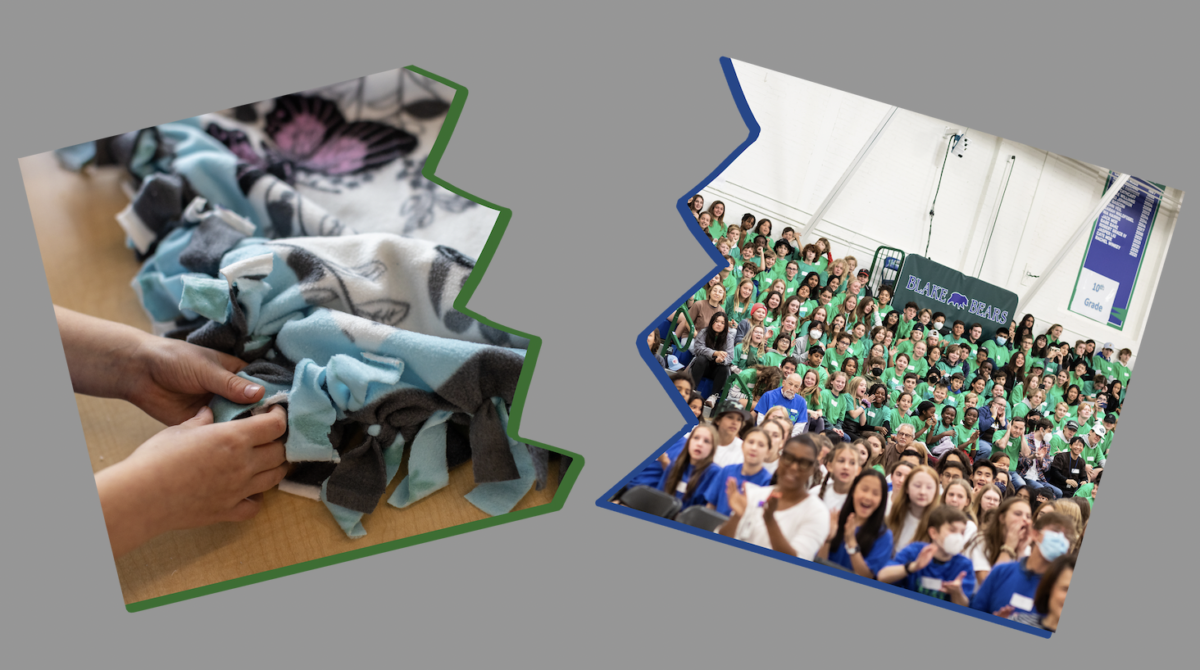The former, longer version of Legacy Day was one of the most pinnacle days that described Blake school culture. Older generations of Upper school students were able to impart knowledge onto younger generations- giving older students a sense of leadership- all through engaging in beneficiary services for communities in need. The previous formatting towards Legacy day provided an opportunity for new connections between students in the Blake community. The filled day included multiple points to bond and connect as diverse groups of students, as we could engage in meaningful service, or simultaneously play games and enage with our community- all in the same day. Now, the day has been split into two shorter days throughout the year: Convocation in September- which included speeches, music, and activities-, and, in April, Legacy day; to service in-need communities.
I have mixed feelings about the split. While I enjoy the proposition of seeing the younger kids once more often throughout the year, I feel as if one measly hour was not enough to foster lasting memories and bonds within the groups. The lengthier day allowed for comfortability to ebb and flow throughout the time spent with each other. Rania Abdullahi ‘25 expresses that the shorter day, “felt like the whole thing was kind of rushed, because we had to get back to the Upper School and… we had to get [the 3rd graders in my group] back to their classrooms and they had to do school after.” Abdullahi further expressed a similar experience to my group, “Half of [Convocation] was reintroducing and re-getting to know each other, so I felt we didn’t get to do much with each other and then we had to go our separate ways.” Along with Abdullahi, only closer towards the ending of our hour was my group able to become more comfortable and begin to foster connections through playing games, therefore it felt as once the monotonous public announcement rang from the speaker, the connections that began to bud felt as if they were cut off from flourishing further.
I believe the prospect of two days spent with the larger community could be beneficial towards a greater communal identity; however, the half-day shift does not appear to be one that progresses community experience based on the day in September. If there were two days, one that was Convocation and activities, and Legacy day, one that was to give service, then those should be prolonged, extending for a longer period of time. With the experience we had during Convocation, adding even a slight, additional half hour would give students the opportunity to make lasting connections.





